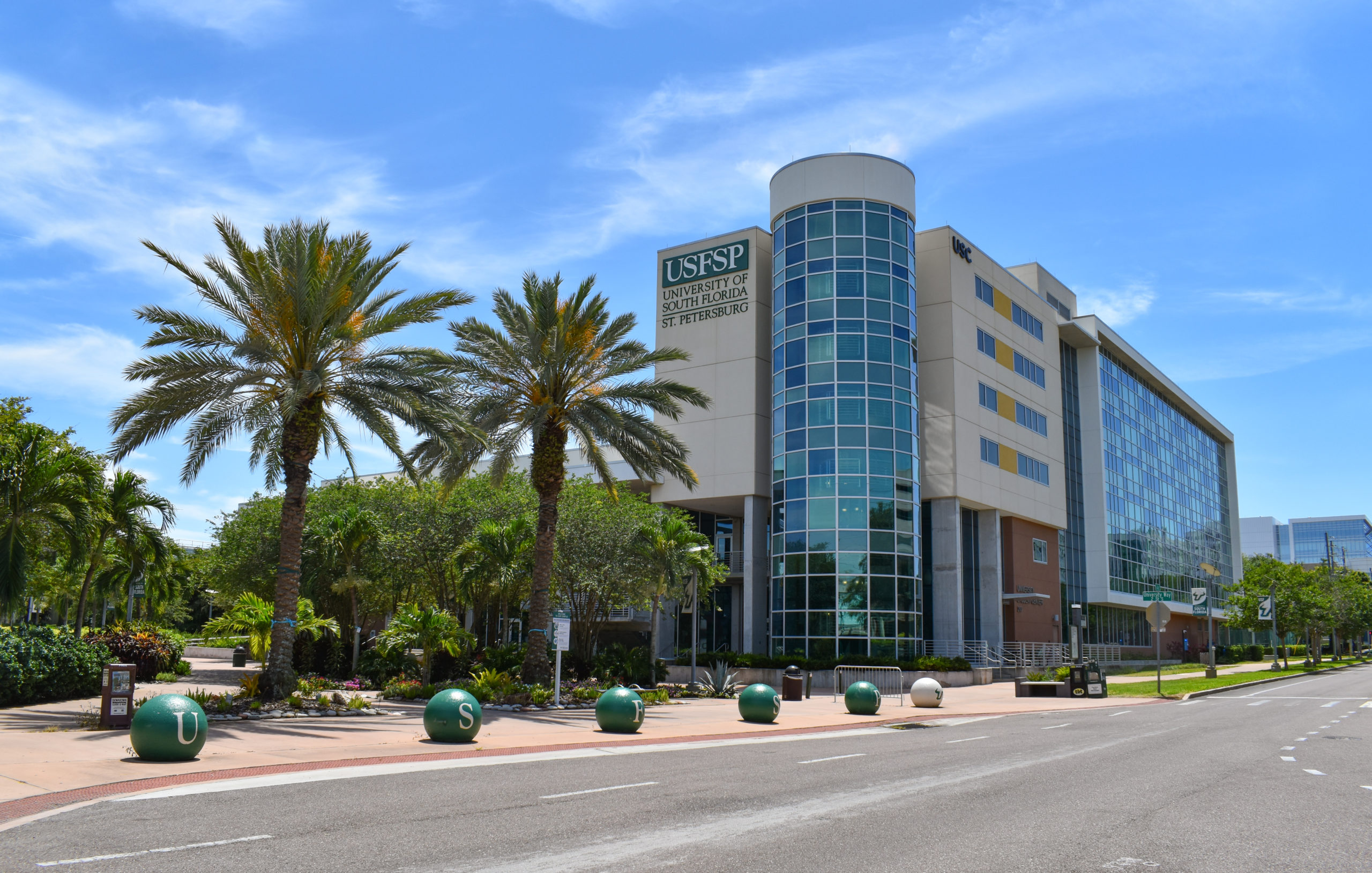The faculty-led survey was sent to all USF faculty members at the end of the spring 2021 semester. As of Sept. 23, the Faculty Council received approximately 430 responses across all three campuses.
Courtesy of Annalise Anderson | The Crow’s Nest
By Annalise Anderson
A recent survey revealed the majority of USF St. Petersburg faculty who responded feel they have been negatively impacted by consolidation.
Spearheaded by USF Sarasota-Manatee Faculty Council Chair Anthony Coy, the faculty-led survey asked faculty members at all three USF campuses to rate how consolidation has either negatively or positively impacted various areas of their work.
St. Petersburg Faculty Council Chair David Rosengrant shared preliminary results from St. Petersburg respondents during a Faculty Campus Council meeting on Sept. 23.
Of 75 respondents, 72% of St. Petersburg faculty agree that, overall, they have been negatively impacted by consolidation; 10.7% disagree and 17.3% feel neutral.
Respondents were also asked to rate how they feel consolidation has affected areas, like faculty research, teaching, service and work-life balance. Results were consistent, reflecting that the majority of respondents feel consolidation had a negative impact on all areas they were asked to assess.
The survey was sent to all USF faculty at the end of the spring 2021 semester and responses are still being received by the Faculty Council. As of Sept. 23, approximately 430 people responded across all three campuses.
Written responses to survey questions were also recorded, however, Rosengrant said he has yet to analyze them for trends in faculty experiences.
“We have not really gotten deep into the data, but it appears that out of the three campuses, St. Petersburg faculty are the ones who are most unhappy with the consolidation,” Rosengrant said in an email to The Crow’s Nest.
For years, USF St. Petersburg faculty have had strong feelings about being shortchanged and diminished by USF Tampa administrators.
Darryl Paulson, professor emeritus of government at St. Petersburg, is skeptical about the accuracy of the survey’s preliminary results, stating that any positive responses are likely from new faculty who don’t fully grasp the campus’ turbulent history with consolidation.
“I am surprised it is not a higher percentage who believe consolidation has had a negative impact,” Paulson said in an email to The Crow’s Nest.
“It would be interesting to see a breakdown based on when the faculty members arrived at USF. I would expect newer faculty cast most of the positive votes because, one, that is the only situation they have known, and two, they never lived under the tyranny of the past,” Paulson said. “Longer-term faculty are likely to see consolidation as a return to what used to be, and they fear that.”
Stripped of its separate accreditation in 2018, St. Petersburg fought to maintain its identity as a branch campus under consolidation.
However, of 64 survey respondents, 71.9% disagreed that St. Petersburg’s campus identity has been successfully maintained.
Rosengrant said the data will help the Faculty Council determine how to address St. Petersburg faculty’s adverse feelings toward consolidation.
“What can we do as a council if we know about these feelings of being negatively impacted in multiple areas? … What do we need to do to be proactive and put our faculty in a better place with this?” Rosengrant said during the meeting.
Rosengrant said a full report on survey results is forthcoming.




The trauma inflicted on USFSP since Sophia was ousted, worsened by consolidation, cost our campus far too many excellent faculty and staff, including me. Tragic destruction of what was an amazing and separately accredited institution. The costs to the community is immense.